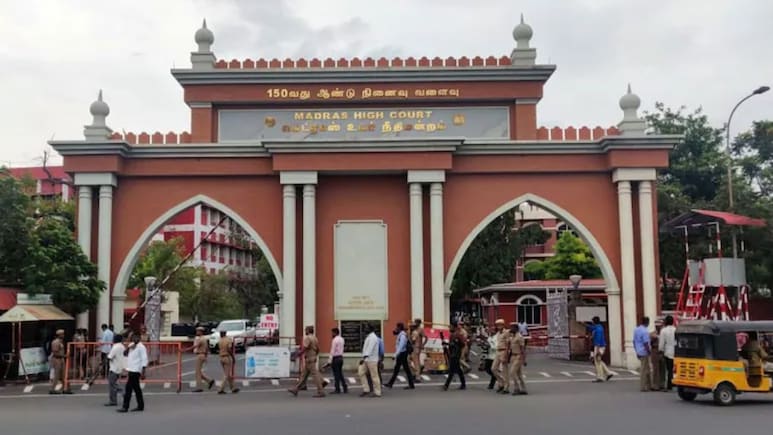
In a landmark ruling that expands the scope of victim rights in property offences, the Madurai Bench of the Madras High Court has directed the Tamil Nadu Government to pay 30 per cent of the value of unrecovered stolen gold to victims whose theft cases were closed as "undetected" after years of ineffective investigation.
Calling the relief a constitutional consequence of the state's failure to protect citizens and their property, Justice B Pugalendhi held that when the state assumes exclusive control over criminal investigation, it also accepts responsibility for its failures.
The court ruled that prolonged failure to detect offenders in these cases amounted to a violation of Article 21, since the right to life includes dignity, security and the protection of one's property.
It stressed that the compensation ordered is a public law remedy, not an act of goodwill, and may be recovered from the victims later if the stolen gold is eventually traced.
Along with ordering compensation, the Court issued far-reaching directions to strengthen accountability within the police system.
The Director General of Police has been instructed to ensure that complainants are informed before a case is marked "undetected", and to reaffirm that such reports are merely provisional and do not close the investigation.
Police units must maintain an ongoing review of these cases, using weekly Crime and Occurrence sheets and the Register of Undetected Cases for closer monitoring.
The State Crime Records Bureau has been directed to conduct quarterly reviews of undetected cases to identify patterns and issue advisories.
A crucial part of the judgment is the Court's directive to deploy eminent and experienced officers to re-examine long-pending cases.
The state has been encouraged to form District-level Special Investigation Teams, comprising skilled officers with proven investigative expertise, supported by enhanced infrastructure, broader authority and better remuneration.
These elite teams would be tasked with reopening cases that have remained undetected for more than five years, and officers who successfully identify offenders in such cases may be considered for rewards.
The court said such specialised intervention was essential given the systemic gaps exposed across districts.
The judgment also calls for improvements in police capacity.
The DGP (Training) must devise refresher courses for investigating officers on modern forensic tools, evidence handling, crime-scene management and effective communication with victims, the court said.
Noting that the lapses in these areas were consistent across the cases examined, the court said better training was crucial to prevent recurrence.
The ruling emerged from a batch of petitions filed by victims from Sivagangai, Madurai, Karur, Ramanathapuram and Pudukottai.
In each case, households were broken into when residents were away attending family functions, travelling or staying with relatives. Significant quantities of gold - ranging from 17 to 87 sovereigns - and cash were stolen.
The court found a striking pattern: CCTV footage left unexamined, suspects traced to other states not arrested, neighbourhood witnesses not questioned, and forensic procedures delayed or ignored. In several instances, complainants were not even informed when their cases were marked undetected.
Some victims waited between four and ten years without a single meaningful update.
Justice Pugalendhi described the pattern as "institutional neglect" and said the police had failed in their constitutional duty to investigate with diligence.
The court concluded that justice is not accomplished merely by registering FIRs or filing undetected reports, but requires continuing investigation, clear communication with victims, and compensation when the system fails.
Track Latest News Live on NDTV.com and get news updates from India and around the world

